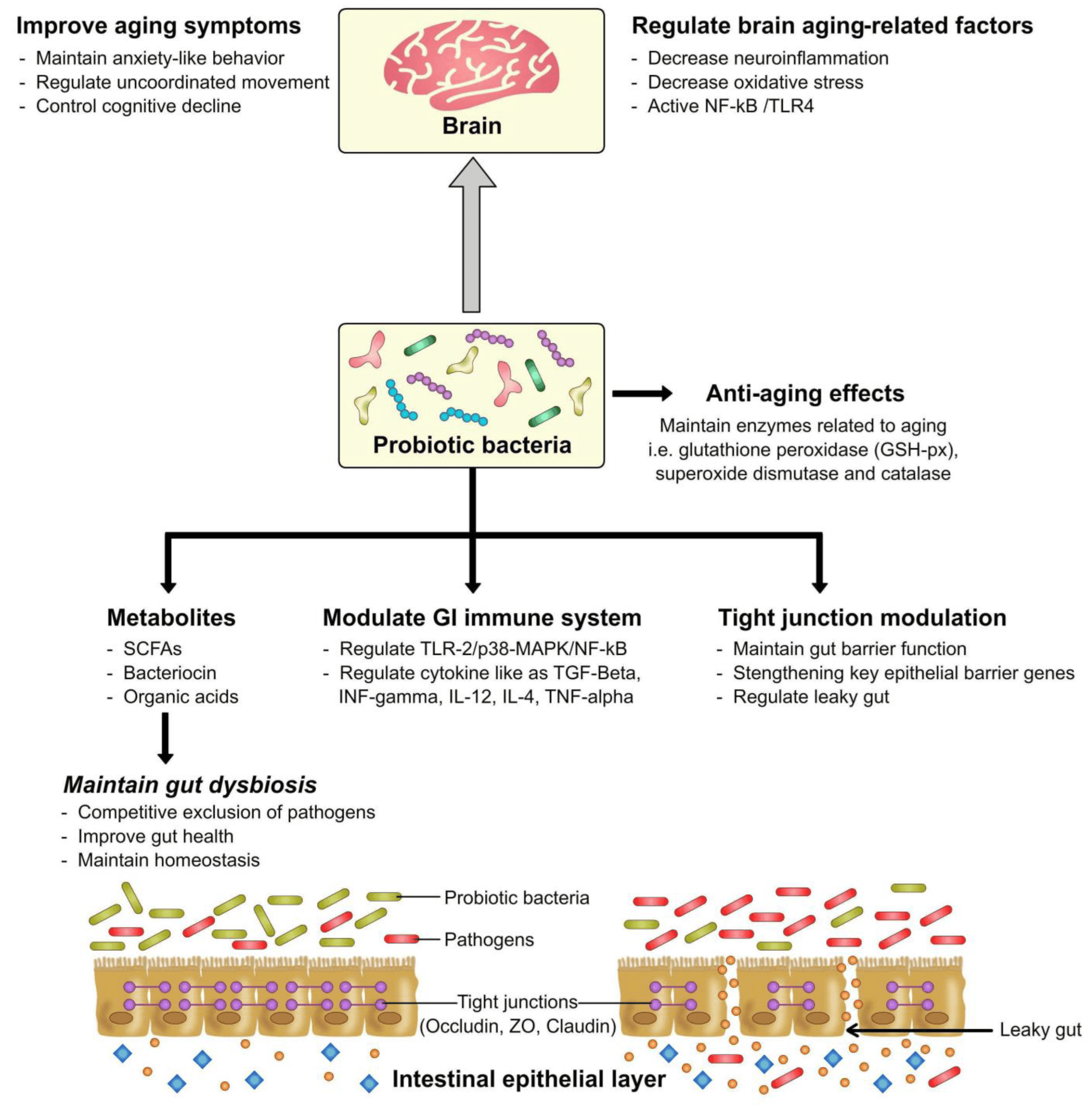Geriatric Probiotics : A Simple Guide for Seniors
So, you've heard all the buzz about probiotics and decided to give them a try. But now you're feeling a little... bloated. And with a lot of conflicting information out there, you might be wondering if it's even worth it. This post is for you. We'll break down the what, why, and how of probiotics for seniors in a way that's easy to digest.

Why Do I Feel Bloated?
That uncomfortable, gassy feeling you get after starting a new probiotic is a super common experience. Think of it like a crowded bus: when a bunch of new passengers (the probiotics) get on, things can get a little cramped and bumpy for a while.
This bloating is a direct result of the new microbes getting to work in your gut. They start to ferment undigested carbohydrates, which produces gases like hydrogen and carbon dioxide. While this sounds unpleasant, it's actually a sign that the probiotics are active and making changes inside your body. It's an adjustment period that usually passes in a few days or weeks.
What to do: To ease the transition, you can start with a low dose and slowly increase it over a few weeks, giving your body time to acclimate.
However, if bloating or other discomfort persists for more than a few weeks, it's a red flag. In older adults, prolonged symptoms could be a sign of something more serious, like Small Intestinal Bacterial Overgrowth (SIBO). This is a condition where too many bacteria, typically from the large intestine, end up in the small intestine. Since SIBO is more common in seniors due to age-related changes like slower gut motility and less stomach acid , it's crucial to consult a doctor if symptoms don't improve.
Can I Just Empty the Capsule?
A lot of people wonder if they can just open up a probiotic capsule and mix the contents with food, like yogurt. It makes sense, right? It could make it easier to swallow and might feel gentler on the stomach. The short answer is: maybe, but with a big catch.
Many probiotic capsules are designed with a special protective coating, called an enteric coating, that's crucial for their survival. This shield protects the live bacteria from the harsh, acidic environment of your stomach. If you bypass this coating, you risk destroying the very bacteria you're trying to introduce to your gut, which would make the supplement much less effective.
Now, what about mixing it with yogurt? Yogurt is a fantastic, natural source of probiotics. The food itself can offer a little protection from stomach acid. Studies have shown that some strains can maintain viability in yogurt, especially if it contains prebiotics. However, the yogurt's natural acidity might also reduce the effectiveness of some probiotic strains.
The bottom line? If you're struggling with capsules, look for a probiotic that's specifically sold as a powder, which is designed to be mixed with food or drinks.
Here’s a quick comparison of the different ways to get your probiotics:
Delivery Method | Pros | Cons |
Capsule (Standard) | Convenient, fixed dosage, long shelf life | Potential swallowing difficulty, exposed to stomach acid |
Capsule (Enteric-Coated) | Targeted delivery to intestines, protected from stomach acid | May be more expensive, potential swallowing difficulty |
Powder | Customizable dosage, easier to consume | Shorter shelf life once opened, less precise dosage |
Fermented Foods (Yogurt, Kimchi) | Natural, provides other nutrients, part of a healthy diet | Less precise dosage, strain types can vary |
The Aging Gut: To Supplement or Not to Supplement?
As we get older, our gut microbiome—that complex community of microorganisms in our digestive system—naturally changes. We tend to see a decline in the overall diversity of these species, with a decrease in beneficial bacteria and an increase in potentially harmful ones. This shift is known as "dysbiosis", and it's linked to a chronic low-grade inflammation called "inflammaging". This inflammation is a key player in many age-related diseases.
While these changes are common, they aren't just an unavoidable part of getting older. Our diet and lifestyle play a huge role. A proactive approach is often the best choice.
While you can't rely on a single probiotic to cure everything, science shows they can be a valuable tool. The key is to choose the right strains for the right job.
What Science Says Works
Role of Probiotics in aging
● Digestive Health: Probiotics can ease occasional gas, bloating, and indigestion. They are particularly effective for constipation, with strains like L. casei Shirota and Bifidobacterium lactis shown to improve regularity.
● Immune Support: Probiotics can enhance immune function in the elderly and help your body fight off infections.
● Cognitive Function: Studies suggest that probiotics can even improve cognitive function, especially in those with cognitive impairment.
● Muscle Health: Probiotics may help improve muscle strength and physical performance in older adults.
● Nutrient Absorption: They can also help your body absorb nutrients more effectively, which is especially important as you age.
What’s Inconclusive (or Doesn't Work)
● General Infection Prevention: The evidence is not strong for using probiotics to prevent all types of infections in older adults.
● Broad Health Outcomes: While probiotics can help with specific issues, there's not enough evidence to support their use for general well-being or other broad health outcomes.
● General Bloating: There's no single "best" strain for general bloating, and more research is needed to pinpoint the most effective ones.
Final Tips and Takeaways
Navigating the world of probiotics can feel like a guessing game. The best advice is to take a proactive approach with a few key steps.
1. Talk to Your Doctor: Always, always, always consult a healthcare professional before starting any new supplement, especially if you have existing health conditions or are taking other medications.
2. Start Slow: Begin with a low dose and gradually increase it over a few weeks to minimize initial discomfort.
3. Choose Wisely: Look for products that clearly list the specific probiotic strains and have clinically validated dosages. Remember, a high CFU count doesn't guarantee effectiveness; look for products with advanced delivery systems that protect the bacteria.
4. Listen to Your Body: If bloating or discomfort persists, consider reducing the dosage, switching to a different strain, or stopping altogether, and if you have any signs of a serious allergic reaction, seek immediate medical help.
5. Don’t Rely on a Pill: While probiotics can be a helpful tool, they are not a "silver bullet". The most effective way to support your gut health is through a holistic approach that includes a healthy diet, exercise, and a balanced lifestyle.
References
Sorathia SJ, Chippa V, Rivas JM. Small Intestinal Bacterial Overgrowth. [Updated 2023 Apr 17]. In: StatPearls [Internet]. Treasure Island (FL): StatPearls Publishing; 2025 Jan-. Available from: https://www.ncbi.nlm.nih.gov/books/NBK546634/
Hutchinson, A. N., Bergh, C., Kruger, K., Sűsserová, M., Allen, J., Améen, S., & Tingö, L. (2021). The Effect of Probiotics on Health Outcomes in the Elderly: A Systematic Review of Randomized, Placebo-Controlled Studies. Microorganisms, 9(6), 1344. https://doi.org/10.3390/microorganisms9061344
Wu, Y. L., Xu, J., Rong, X. Y., Wang, F., Wang, H. J., & Zhao, C. (2021). Gut microbiota alterations and health status in aging adults: From correlation to causation. Aging medicine (Milton (N.S.W)), 4(3), 206–213. https://doi.org/10.1002/agm2.12167
Gyriki, D., Nikolaidis, C. G., Bezirtzoglou, E., Voidarou, C., Stavropoulou, E., & Tsigalou, C. (2025). The gut microbiota and aging: interactions, implications, and interventions. Frontiers in aging, 6, 1452917. https://doi.org/10.3389/fragi.2025.1452917
Gong, P., Tang, X. The impact of probiotic supplementation on gastric motility and nutrient absorption in elderly patients with Gastrointestinal disorders. BMC Gastroenterol 25, 192 (2025). https://doi.org/10.1186/s12876-025-03740-2
Miller, L. E., & Ouwehand, A. C. (2013). Probiotic supplementation decreases intestinal transit time: meta-analysis of randomized controlled trials. World journal of gastroenterology, 19(29), 4718–4725. https://doi.org/10.3748/wjg.v19.i29.4718
Ma, M., Li, B., Qu, Z., Liu, S., & Li, S. (2025). Efficacy of probiotics in patients with cognitive impairment: A systematic review and meta-analysis. PloS one, 20(5), e0321567. https://doi.org/10.1371/journal.pone.0321567
Deng, X., Shang, X., Zhou, L., Li, X., Guo, K., Xu, M., Hou, L., Hui, X., & Li, S. (2023). Efficacy and Safety of Probiotics in Geriatric Patients with Constipation: Systematic Review and Meta-Analysis. The journal of nutrition, health & aging, 27(11), 1140–1146. https://doi.org/10.1007/s12603-023-2028-4
Patrick Alexander Wachholz, Vânia dos Santos Nunes, Adriana Polachini do Valle, Alessandro Ferrari Jacinto, Paulo José Fortes Villas-Boas, Effectiveness of probiotics on the occurrence of infections in older people: systematic review and meta-analysis, Age and Ageing, Volume 47, Issue 4, July 2018, Pages 527–536, https://doi.org/10.1093/ageing/afy006
Maria Besora-Moreno, Elisabet Llauradó, Rosa M Valls, Anna Pedret, Rosa Solà, Effects of Probiotics, Prebiotics, and Synbiotics on Sarcopenia Parameters in Older Adults: A Systematic Review and Meta-Analysis of Randomized Controlled Trials, Nutrition Reviews, Volume 83, Issue 7, July 2025, Pages e1693–e1708, https://doi.org/10.1093/nutrit/nuae145
Dimitrellou, D., Sakadani, E., & Kandylis, P. (2025). Enhancing Probiotic Viability in Yogurt: The Role of Apple Fibers in Supporting Lacticaseibacillus casei ATCC 393 During Storage and Gastrointestinal Transit. Foods, 14(3), 376. https://doi.org/10.3390/foods14030376
El-Abbadi, N. H., Dao, M. C., & Meydani, S. N. (2014). Yogurt: role in healthy and active aging. The American journal of clinical nutrition, 99(5 Suppl), 1263S–70S. https://doi.org/10.3945/ajcn.113.073957
